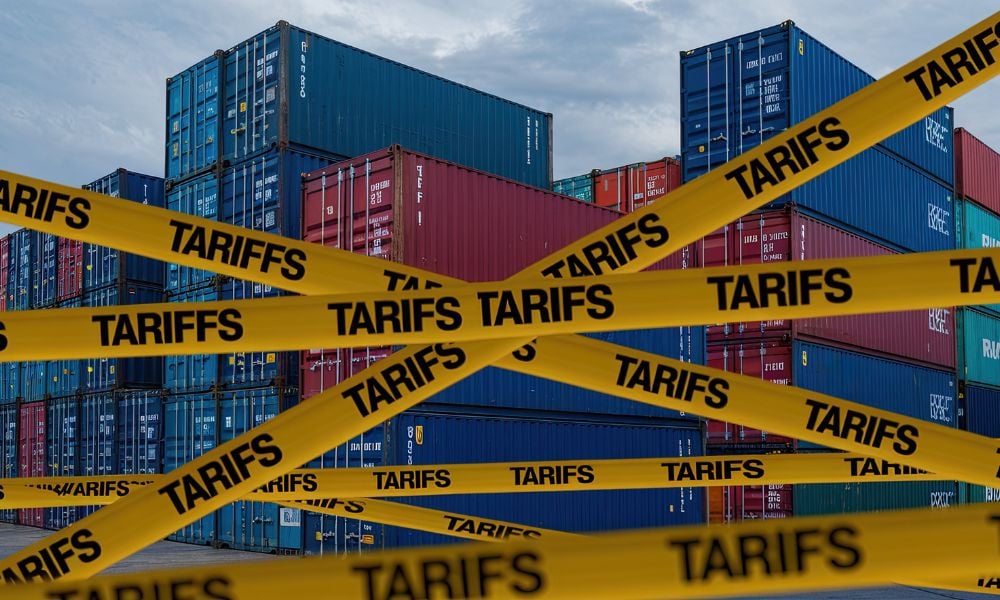

by Andre Janse van Vuuren and Anand Krishnamoorthy
Stocks retreated at the start of a potentially volatile week as US trading partners rushed to finalize trade deals with the Trump administration ahead of a July 9 tariff deadline.
S&P 500 futures fell 0.5% after cash equity markets were closed on Friday for the Fourth of July holiday. Tesla Inc. slumped more than 7% in premarket trading on concerns that Elon Musk’s bid to form a new political party could trigger backlash from President Donald Trump. European stocks were flat, while a gauge for Asian equities declined 0.7%.
Trade tensions are back in view as the tariff deadline approaches, with Trump pledging to start issuing unilateral rates to dozens of countries in the coming days. Stocks had climbed to record highs — recovering from their April plunge when sweeping levies were announced — fueled by expectations that tariffs will be less severe than expected and signs that the US economy remains resilient.
US officials earlier signaled Aug. 1 as the date for higher levies to kick in. Treasury Secretary Scott Bessent indicated some countries may be offered a three-week extension to negotiate.
“I think there’s been too much relaxation,” Christian Mueller-Glissman, head of asset allocation research at Goldman Sachs Group Inc., told Bloomberg TV. “There’s this expectation that there’s a lot of offsetting factors. But if uncertainty picks up on the tariffs, and we start to see the first signs that in the hard data there’s some negative impacts, the market might question the Goldilocks pricing it currently has.”
In bond markets, Japan’s 30-year yield surged 10 basis points to 2.96% on concerns that the outcome of this month’s upper house election may result in bigger fiscal spending. US Treasuries were little changed, with the 10-year yield at 4.34%.
Metals fell and the yuan weakened after Trump said those aligning with the BRICS group of nations will face an additional 10% levy. The dollar rose 0.4%.
BRICS members include Brazil, China, South Africa and India. Over the weekend, leaders agreed to continue talks on a cross-border payment system for trade and investment — a project they’ve been discussing for a decade.
“Trump’s comments are a warning shot for emerging-market nations looking to go down the BRICS alignment path,” said Mingze Wu, a trader at StoneX Financial in Singapore. “You’d want the smoke to clear first before putting on any active trades right now — nobody likes political uncertainty.”
Meanwhile, oil extended declines after OPEC+ agreed to a bigger-than-expected production increase next month, raising concerns about oversupply just as US tariffs fan fears about the demand outlook. Brent slid to 0.6% to $67.92 a barrel after falling 0.7% on Friday.
Corporate Highlights:
Some of the main moves in markets:
Stocks
Currencies
Cryptocurrencies
Bonds
Commodities
This story was produced with the assistance of Bloomberg Automation.

Summit Financial unveiled a suite of eight new tools, including AI lead gen and digital marketing software, while MassMutual forges a new partnership with Orion.

A new analysis shows the number of actions plummeting over a six-month period, potentially due to changing priorities and staffing reductions at the agency.

The strategic merger of equals with the $27 billion RIA firm in Los Angeles marks what could be the largest unification of the summer 2025 M&A season.

Report highlights lack of options for those faced with emergency expenses.

However, Raymond James has had success recruiting Commonwealth advisors.
Orion's Tom Wilson on delivering coordinated, high-touch service in a world where returns alone no longer set you apart.
Barely a decade old, registered index-linked annuities have quickly surged in popularity, thanks to their unique blend of protection and growth potential—an appealing option for investors looking to chart a steadier course through today's choppy market waters, says Myles Lambert, Brighthouse Financial.
